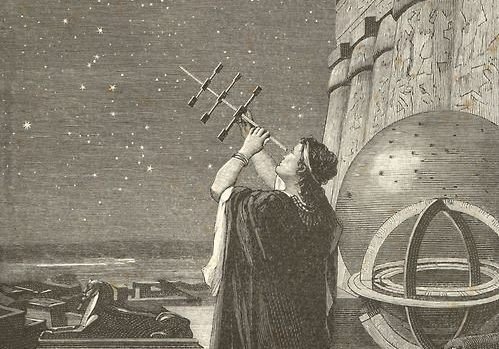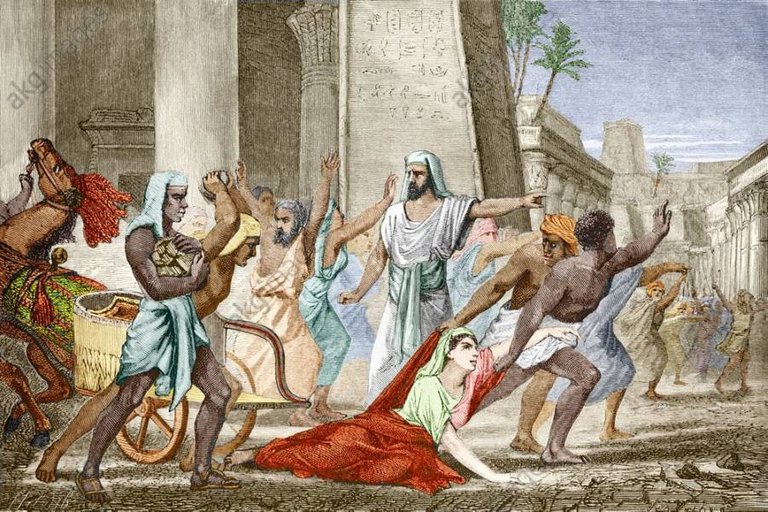G'day Team,
Ada Lovelace, the worlds first computer programmer. But today we'll chat about a woman who lived in ancient Egypt and Rome. Generally known only as Hypatia... she's credited as histories first female scientist! So let's introduce Hypatia...Thanks for dropping by again, and welcome to another installment of my series on women in science. Today's contribution was brought to my attention by @amart29. Last time we spoke about
Women in Science
Mary Anning
Elizabeth Blackburn
Lise Meitner
Hypatia
To say Hypatia was a woman of great achievements would be a massive understatement. Not only was she an exquisite mathematician, astronomer and philosopher, but she also held a massive amount of political influence during her time. While she produced none of her own groundbreaking works Hypatia was well considered one of the greatest mathematical and scientific minds of the time. She made commentaries on the works of other great minds in science and was a well respected and renowned educator, who scholars would travel for years to learn from.

Life
At a time when Egypt and the Roman empire were heavily interlaced a Roman mathematician named Theon of Alexandria had a daughter in Alexandria, Egypt. Raised alongside the scholars of her father's school, the young girl came to love the intertwined topics of mathematics and philosophy that were so popular at the time.
Hypatia soon joined her father in being not only a student of the school but also a teacher. She was particularly fond of the teachings of Plato and Aristotle, though rejected some of the 'newer' ideas in philosophy that were taking root at the time. Over time Hypatia's lectures and teachings began to outshine her fathers, and the world at large began to take notice. She was well admired by the magistrate and her male colleagues of the time, having won their respect through a "self-possession and ease of manner".
While Hypatia worked in an era where commentary on previous pioneering work was more the norm than the development of one's own groundbreaking hypothesis, she's still a well respected thinker. Her works included commentaries on famous mathematical works such as Arithmetica and Apollonius' conic sections as well as editing books such as Ptolmey's Almagest.
Perhaps more importantly Hypatia was a respected female member of the upper echelons of thoughts. Among the first women in history to be able to make such a claim. Beyond this Hypatia pagan, and a problem for the growing church of Christianity. While she made no attempts to actively oppose Christianity, her mere existance was a problem for a religious cult which actively preached opression of women and sought complete power. Hypatia was a regular advisor to many of the governments top officials, and it was percieved that her paganism was one of the driving forces behind their refusal to bow to the church.
In 414, a power struggle broke out between a new bishop of Alexandria, Cyril, and... well almost everyone else of influence in the city. Acting against the more popular rhetoric of morality and udnerstanding that pervailed at the time, Cyril ejected all Jews from the city and seized all their property. Disgusted by his behavior several sects rose to oppose him. While Hypatia was not a direct supporter of any of these movements, she was philosophically aligned with their cause. Accordingly, the bishop Cyril sought to dismantle her influence and reputation
A year after the conflict broke out, Hypatia was violently abducted while traveling home and bought to a church where she was gruesomely murdered. Her body was dismantled and publicly burned. Hypatia's death was not well received by the masses, as philosophers were generally considered above the conflicts of religion and politics. Cyril briefly lost much of his political influence in Alexandria in the fall-out, however, the death of Hypatia and the loss of her influence soon ran its course. Cyril soon overthrew all other political influences in the city within the next five years gained the majority of political influence in Alexandria.

While her death was but a drop in the ocean of blood spilled by Christians and the Church over the ensuing millennia, it's a key example of the dangers of opposing religious zealots. Hypatia paid with her life, for nothing more than living a life of thought and education. While her death was a tragedy, the ripples of its aftermath were catastrophic. Philosophers of the age increasingly saw Christianity as incompatible with their moral codes and the Neoplatonism philosophy that underpinned their lifestyles. The philosophers of the future would be pagans, and firmly opposed to the Church, but they would suffer and for centuries by slaughtered for this opposition. Hypatia became a martyr for the philosophical movement.
Thanks
Thanks for reading another installment on women in science. I've had a great time writing this series and I hope everyone has had a great time reading it! As always if anyone would like to contribute to the series, please feel free to do so using the tag #womeninscience.
Thanks
-tfc
Note: The #christianity is in hope that someone will read this and get a more realistic idea of the origins of their religion, which to the indoctrinated is always painted in a glorious light, also has some very dark moments.
Resources
Encyclopaedia Britannica
Smithsonian
Wiki
Uchicago
Hypatia.com
steemstem

I'd heard of Hypatia before, but never knew a ton about her. What a fascinating figure!
You should do a post on Hildegard of Bingen as well!
Hello @tfcoates
I was spellbound reading this. Quite an interesting record of Hypatia achievements and ingenuity. How she gradually rise to even outshine her own Dad piqued me.
Honestly, the atrocities of early Christians were nothing to write home about. The untimely death of this learned woman, was one of them. Damn!
Feeling like denouncing my faith! Damn!
Regards.
@eurogee of @euronation and @steemstem communities
Gregor Mendel, William Turner and Robert Boyle.Hi @eurogee, might be a bit early to denounce your faith! Remember this is simply the birth of the Christianity and the religion has come a long way since them. In more recent times many famous scientists who made startling breakthroughs were very religious. Think of
I don't think the goal here is religion bashing, so much as to paint a picture of how any group when given too much power and with a lack of tolerence can commit atrocities.
I hear. Thanks
Vote before reading... Great series
Excellent @tfcoates, as always good work, really an admirable life of Hypatia with tragic outcome, it occurs to me to ask, if in her time or before, were there other women scientists ?, whose work was lost in history, because of prejudice and ignorance. If Hypatia was accepted, I suppose that as equal in the scientific circles of her time, how many others could also be part of them? and maybe we never know. On the other hand, it is curious as a doctrine that was supposed to be initiated by someone who professed equality and love of neighbor, could degenerate into a genocidal and fanatical cult.
Hi @amart29!
That's a really good question. So according to the research I did when I was looking into this article Hypatia was probably the most renown female scientist of her era. This doesn't mean there weren't other women who were respected for their scientific minds, but none reached the notoriety of Hypatia.
But as always I think it's important to consider women from other cultures who're often overlooked because they're not part of our Western history. There are records of an ancient Egyptian woman who was considered the 'chief physician' of the time (Merit-Ptah)... though perhaps more a healer and less a scientist. Right after Hypatia we have Theano a student of Pythagoras.
The other branch of 'science' I found information on was alchemy. There are a number of women who contributed to this field, though they may have been considered scientists at the time their contributions do not live on and the field is not relvent today (unlike Hypatias) so I'm giving her the gold medal :)
Very good information, I did not know the scientists you mention, you are very well documented.
Very interesting, well written article! As a history student this is something I also love to read, what a coincidenc, I also wrote an article about women in history today then I found this great job @tfcoates
I think this is a very wrong depiction of what was going on at the time. You state ''the philosophers of the future would be pagans'' which is very wrong, as there were multiple Christian philoshophers prior to Hypatia and of course after Hypatia. Justin the Martyr is a fine example.. A Christian martyr who found death at the hands of the Romans almost three centuries before Hypatia.
What about the thousands Christians who were persecuted by the pagan powers?
What about St. Augustine, or the early church fathers?
I think you are totally biased in your depiction against Christians.
Also, what makes a Christian? If I call myself a Christian and go slaughter and pillage, would you say that I am a Christian? I don't think so... It doesn't matter if I carry a cross around my neck and call myself a Christian, ultimatelly the judgement of my faith comes from my actions and not by how I call myself or how I externally look. But that's a whole different story.
If you all yourself a Christian, you are a Christian. That's all that matters... if you want to claim only good Christians are actually Christian, then you're kidding yourself.
Classic Roman philosophers followed a specific approach to their learning and teachings, which was arguably not compatible with Christian teachings. While there were two branches of Neoplaplatonism vying for popularity at the time (one which accepted Christianity (the one Hypatia followed) and one which actively opposed it). The murder of Hypatia cemented the dominance of the branch which opposed Christianity. After Hypatia's death philosophers were no longer interested in pretending their teachings could co-exist with the church.
Once again, I am speaking about Hypatia and the Christians + Church she faced in her time. I see no relevance of Justin the Martyr... a man who lived and died three hundred years before this story, in a Rome where the Christians did not yet have a significant amount of power.
Given how you've chosen to comment on this post, I don't think you're interested in hearing a single word against Christians and I don't think you're capable of deciding what is or isn't bias. For centuries Christianity was directly opposed to mathematical, philosophical and scientific progress.
I also find it astounding that in an article about an intelligent and powerful woman who fought against the norms of her time and passively opposed a violent and corrupt regime which ultimately murdered her... all you find to complain about is how someone has called out your precious religion. Perhaps the reason Christianity remains so out of touch is an inability to look beyond its own shortcomings even for a moment to appreciate the achievements of others. So if my article is biased, tell me which of Hypatia's achievements were unearned? How was she not a phenomenal mathematician, scientist and educator? Because in the end, that is what the article is about.